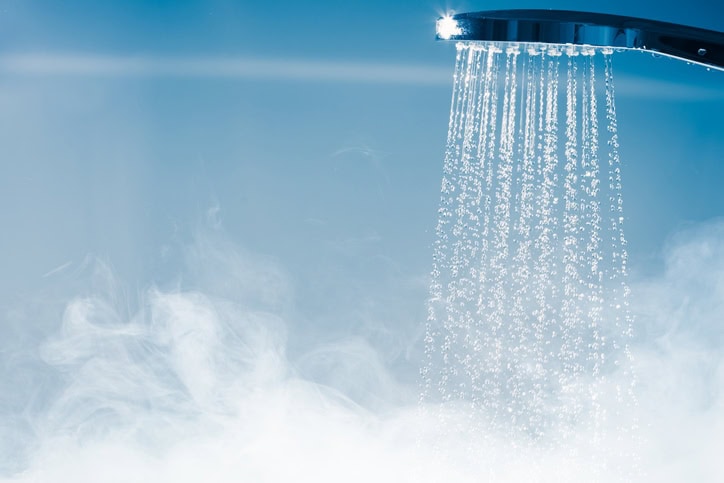Why Does Water Pressure Fluctuate in the Shower?

Too much or too little water pressure in the shower can turn a relaxing experience into an annoyance.
Although low water pressure in the shower is more common than high pressure, either can happen in your North Carolina home. Water pressure fluctuation can result from a simple problem that is easily fixable, or it may indicate a more significant issue in your plumbing system.
Sutton Brothers Heating & Cooling can get to the root of the problem. Our qualified team has assisted customers in Greensboro with their plumbing systems for more than 20 years. We also offer solutions for your heating, ventilation, and air conditioning (HVAC) needs.
Keep On Top Of Your Plumbing
According to the U.S. Environmental Protection Agency (EPA), showers account for 20 percent of home indoor water use. The average family uses nearly 40 gallons of water per day in the shower.
The EPA also points out that the typical American family uses more than 300 gallons of water per day at home. Toilets account for 24 percent of use, faucets use 19 percent, and clothes washers represent 17 percent. Plumbing leaks waste 12 percent of water, so be sure to give us a call if you have a dripping faucet or showerhead!
With so much water needed for daily tasks and hygiene, it makes sense to keep your plumbing system in top condition. The best way to deal with water pressure problems is to avert them.
At Sutton Brothers, we strongly believe in preventative maintenance. It can reveal potential problems, identify worn parts, and ensure pipes, fixtures, and drains are working without leaks and obstructions.
Our pros check for leaks, verify water pressure, and inspect pipes, faucets, and plumbing fixtures during a maintenance visit.
Why Is Shower Pressure Low?
There are many reasons water intensity weakens in the shower. Some issues are fixed easily without professional assistance. If you have a low-flow showerhead, the water may not feel intense as it would with a traditional showerhead. You might want to consider swapping it out for a showerhead that sports the WaterSense label and meets EPA criteria.
Mineral deposits in your showerhead also might be the cause of restricted water flow. You can clean the showerhead by soaking it in vinegar and then dipping it in clean water.
Peak water used in your Greensboro neighborhood could cause low water pressure in your shower. The easy fix is to avoid times when water use likely is high.
Other triggers for low pressure may be more complicated:
- Pipes might be corroded with rust or clogged with mineral deposits that cause low water pressure.
- Leaks in your plumbing system can lower water pressure.
- The pressure regulator may have malfunctioned.
- The valve that controls water from your main water supply may need adjustment.
- A failing water heater may cause low pressure in your shower’s hot water flow.
Why Is Shower Pressure High?
Low pressure is more common than high pressure in the shower, but both happen. You can test water pressure with a water pressure gauge and outdoor faucet at your Greensboro home. Choose the faucet closest to your home’s water main and refrain from running water elsewhere during the test. Look for a water pressure between 40 and 60 psi.
Our licensed plumbers at Sutton Brothers can test your system and repair it during a maintenance visit. High water pressure can damage plumbing and fixtures.
- A broken water pressure regulator can cause high pressure.
- Trapped air can increase water pressure in pipes.
- Your showerhead’s restrictor valve may have malfunctioned.
- If you hear a banging in your pipes, something called “water hammer,” you could have high water pressure.
Call the Plumbing Experts Today
If you experience water pressure fluctuation in the shower at your Greensboro, NC, home, ask one of our pros at Sutton Brothers to inspect and repair your plumbing. Call us at 336-390-3902 or request service online.